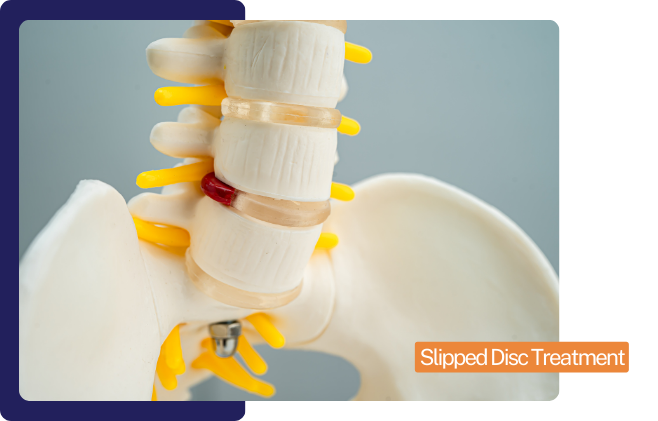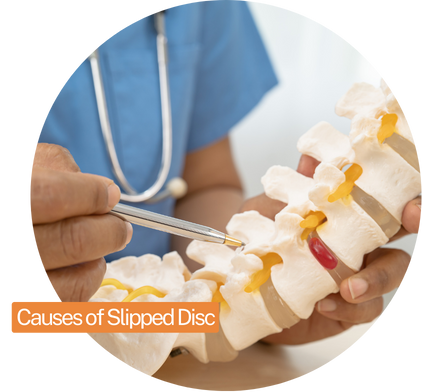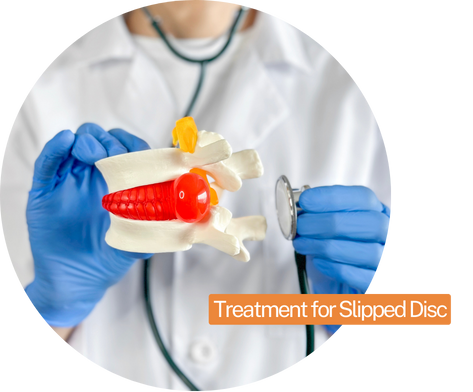Advanced Slipped Disc Treatment in Bangalore
- One day discharge
- No surgery required
- Minimal procedure
- Join work in two days

What is a Slipped Disc?
A slipped disc, also known as a herniated or ruptured disc, occurs when the outer layer of a spinal disc is damaged, causing the soft inner material to bulge out. The spinal column is made up of bones called vertebrae, separated by intervertebral discs that act as shock absorbers. When a disc becomes damaged, it can lead to pain, numbness, and weakness in the affected area.
Make Your Appointment

Patient Testimonials
"Excellent place for pain relief, good doctors with great service."
Ms. Vijaya Lakshmi
"Thank you so much for the treatment and care shown. Dr. Ashiq Bg explained my health condition very nicely and treated me with both friendliness and professionalism. I truly appreciate the staff and hospital for listening to patients' problems in a very polite manner. I strongly recommend this as the best hospital."
Mr. Nani Babu
Where Does This Pain Occur?
Slipped discs can occur in various regions of the spine, including:
- Lumbar Region: Most common, affecting the lower back
- Cervical Region: Can occur in the neck.
- Thoracic Region: May also happen in the upper back.
Symptoms of Slipped Disc
- Pain: The most common symptom, occurring in the back or neck, and may radiate into the arms or legs.
- Numbness or Tingling: Caused by pressure on nearby nerves, leading to numbness or tingling in the arms or legs.
- Weakness: The affected muscles served by the pinched nerves may weaken.
- Difficulty Walking or Standing: Especially if the slipped disc is in the lower back.
- Bladder or Bowel Dysfunction: In severe cases, it can lead to problems with bladder or bowel control.
Causes of Slipped Disc
Different types of shoulder pain require different treatment approaches. Common types include:
- Age: Discs naturally wear down and lose flexibility with age, increasing the risk of a slipped disc.
- Overuse or Injury: Repetitive strain or sudden injury, such as a car accident or fall, can lead to a slipped disc.
- Poor Posture: Slouching or maintaining poor posture for long periods adds strain to the spine.
- Obesity: Excess weight puts added pressure on the spine.
- Smoking: Reduces blood flow to the spinal discs, making them less flexible and more prone to injury.
- Genetic Factors: A family history of slipped discs can increase susceptibility.


Treatment for Slipped Disc
- Rest and Pain Medication: Initial treatment often involves rest and over-the-counter pain medications like acetaminophen or ibuprofen.
- Physical Therapy: A physical therapist can guide you through exercises to stretch and strengthen the muscles around the affected area, reducing pain and improving mobility.
- Chiropractic Care: Spinal adjustments and other techniques can help reduce pain and improve mobility.
- Epidural Steroid Injections: These injections help reduce inflammation and pain in the affected area.
Contact Us
If you are suffering from a slipped disc, our advanced treatment options in Bengaluru can help you recover quickly and effectively. Contact us to learn more and start your journey to recovery.


